Start Your IT Filing for Assessment Year 2024-2025
Online Income Tax Filing
Customer Reviews
Income Tax Return (ITR) 2 is a form designated by the Income Tax Department of India for individuals and Hindu Undivided Families (HUFs) who do not have income from business or profession. The ITR 2 form caters to a variety of income types, ensuring that those with complex income sources can accurately report and pay their taxes.
-
 Basic Rs 1999
Basic Rs 1999All Inclusive
Understand the Flow
How at Virtualtax your request is Processed.
Fill the form
The first step is to fill our requestion form for the services required.
Payment
Payout using our secured gateway
Review
Our Tax Expert will review your documents and call you regarding the documenation
Approve
Our tax expert will discuss you with the approval of of E return.
Income Tax Return (ITR) 2
What is ITR 2?
Income Tax Return (ITR) 2 is a form designated by the Income Tax Department of India for individuals and Hindu Undivided Families (HUFs) who do not have income from business or profession. The ITR 2 form caters to a variety of income types, ensuring that those with complex income sources can accurately report and pay their taxes.
Key Features of ITR 2:
Income from Salary/Pension: This includes regular wages or pension received after retirement.
Income from House Property: Taxpayers owning multiple properties, even if they are not rented out, must report them here.
Capital Gains: Income from the sale of investments such as stocks, bonds, real estate, etc.
Foreign Assets and Income: Disclosure of foreign bank accounts, investments, and income from any source outside India.
Agricultural Income: If it exceeds ₹5,000.
Other Sources: Includes income like lottery winnings, betting, and other non-business-related sources.
Residency Status: Applicable to Resident Non-Ordinarily Resident (RNOR) and Non-Resident Indians (NRIs).
Who Needs to File ITR 2?
Individuals and HUFs who fall under the following categories are required to file ITR 2:
- Salaried Individuals: If your only source of income is your salary or pension, but you own more than one house property, you need to file ITR 2.
- Owners of Multiple Properties: Even if one or more properties are not rented out, all details must be reported.
- Investors with Capital Gains: This includes both short-term and long-term gains from the sale of assets.
- Foreign Income Holders: Those earning from assets or investments held outside India.
- High Agricultural Income: Agricultural income above ₹5,000 requires the use of ITR 2.
- NRIs and RNORs: Non-residents and residents who are not ordinarily residents need to file ITR 2 for their global income.
- Income from Other Sources: Lottery, betting, dividends, and interest that are not categorized under business income.
- Directorship and Unlisted Shares: Individuals who are directors in companies or hold unlisted equity shares must use ITR 2.
Who Doesn’t Need to File ITR 2?
The following categories of individuals do not need to file ITR 2:
- Business Owners and Professionals: Those who derive their income from a business or profession should file ITR 3 or ITR 4.
- Individuals Eligible for ITR 1 (Sahaj): Resident individuals with income up to ₹50 lakh from salary, one house property, and other sources, and who meet other specified conditions, can file ITR 1.
- Individuals with Presumptive Business Income: Those opting for presumptive taxation under Sections 44AD, 44ADA, or 44AE should file ITR 4.
Documents Required for Filing ITR 2
Filing ITR 2 requires meticulous preparation and a variety of documents to ensure all income and deductions are accurately reported. Here’s a comprehensive list of the necessary documents:
General Documents:
- PAN Card: Essential for identification and verification.
- Aadhaar Card: Mandatory for linking with PAN and identity confirmation.
- Bank Account Details: All active accounts including account numbers and IFSC codes for refund purposes.
Salary/Pension Income:
- Form 16: Provided by the employer, this form details your salary, allowances, and deductions.
- Pension Statements: For those receiving a pension, these statements detail the amount received.
Income from House Property:
- Rent Receipts: If earning rental income, keep rent agreements and receipts.
- Property Details: Information about each property including ownership and co-owners.
- Home Loan Interest Certificate: For those claiming deductions on home loan interest under Section 24(b).
Capital Gains:
- Transaction Statements: From brokers or depositories like NSDL/CDSL.
- Purchase and Sale Deeds: For properties or assets sold during the financial year.
- Cost of Acquisition and Improvement Documents: Receipts for any improvements made to the property.
Other Income Sources:
- Interest Certificates: From banks or post offices for interest income.
- Dividend Statements: From companies or mutual funds.
- Winning Statements: For income from lottery or betting.
- Form 26AS: A consolidated annual tax statement showing TDS and TCS.
Foreign Income/Assets:
- Foreign Bank Account Statements: Details of balances and transactions.
- Details of Foreign Assets: Information on properties, shares, or other financial interests held abroad.
- Income Proofs from Foreign Entities:Documentation of income earned from foreign sources.
Agricultural Income:
- Landholding Details: Ownership and extent of agricultural land.
- Receipts for Agricultural Produce Sales: Proof of income from the sale of produce.
Deductions and Exemptions:
- Section 80C Investment Proofs: Receipts for investments like PPF, LIC, NSC, etc.
- Medical Insurance Premiums: Under Section 80D.
- Education Loan Interest Certificates: Under Section 80E.
- Donation Receipts: Under Section 80G.
- Home Loan Principal Repayment and Stamp Duty/Registration Fees: Under Section 80C.
Verification Methods:
Aadhaar OTP: Use the one-time password sent to your registered mobile number linked with Aadhaar.
EVC through Net Banking: Generate an Electronic Verification Code through your bank’s net banking portal.
Bank Account Validation: Validate through your bank account number.
ITR-V Submission: Print, sign, and send the ITR-V to the Centralized Processing Center (CPC) in Bengaluru within 120 days of filing.
Common Errors to Avoid:
- Incorrect Personal Details: Ensure PAN, Aadhaar, and bank details are accurately entered.
- Mismatch in Income Details: Cross-verify income details with Form 16, Form 26AS, and other income proofs.
- Incorrect Deductions: Double-check all deductions under Section 80C, 80D, etc., to avoid discrepancies.
- Wrong Assessment Year: Always ensure the correct assessment year is selected.
- Non-Reporting of Foreign Assets: Failing to report foreign income and assets can lead to severe penalties.
Benefits of Filing ITR 2 on Time
- Avoid Penalties: Timely filing helps avoid late fees and interest charges.
- 2. Loan Approval: Banks and financial institutions often require ITR as proof of income for loan approvals.
- Visa Processing: Some countries require ITR receipts for visa applications.
- 4. Refund Processing: Timely filing ensures quicker processing of refunds if due.
- 5. Compliance: Helps maintain a clean financial record and ensures compliance with tax laws.
Conclusion
Filing ITR 2 is essential for taxpayers with diverse and complex income sources. By understanding the eligibility criteria, gathering the necessary documents, and following the filing procedure diligently, taxpayers can ensure compliance and avoid penalties. For those unsure about the process, seeking professional assistance can ensure accuracy and completeness in filing their returns. Timely and accurate filing not only fulfills legal obligations but also brings peace of mind and financial benefits in the long run.
Penalty for late ITR Filing
Late filing of income tax returns can result in various penalties, depending on your total income.
Individuals with a total income exceeding Rs 5 lakh may face a penalty of Rs 5,000, while those with income below this threshold may incur a reduced penalty of Rs 1,000.
Additionally, if you owe taxes and fail to file the return by the due date, you will be liable for additional interest at a rate of 1% per month until you submit the return.
In more severe cases, penalties can be imposed for underreporting or misreporting of income. Underreporting may lead to penalties of up to 50% of the tax underreported, while misreporting can result in penalties of up to 200% of the misreported tax amount.
Furthermore, repeated failure to file tax returns despite reminders from tax authorities may lead to prosecution procedures. This could result in imprisonment ranging from three months to seven years, depending on the outstanding tax liabilities.
It is crucial to file your ITR1 promptly and accurately to avoid these legal and financial consequences.
How can Virtual Tax Assist in filing ITR?
Virtual Tax offers valuable assistance in filing your ITR income tax return. We begin by aiding you in selecting the appropriate form based on your income sources, ensuring precision in filing.
We meticulously calculate your tax liability, conduct error checks, and prioritize timely filing to minimize the risk of penalties or tax notices. If eligible, we aid in processing your income tax refund efficiently.
Our team of tax experts is readily available to address your queries and provide guidance throughout the process. Virtual Tax also keeps you updated on tax law changes and deadlines, ensuring your compliance with the latest regulations. With our secure platform, you can trust us to safeguard your financial data while simplifying your ITR filing experience .
Frequently asked questions?
Please write to us at support@virtualtax.in with your payment reference number. we will process the refund.
After you have filled our requestion form and uploaded your documents along with fee. Our expert team contact you within 15 minutes of payment. Your return will be prepared and we will send it for approval within 48hours.
On payment receival you will be alloted with a tax expert to prepare and file your return. You can inform about the missing documents to them. They will guide you.
After reviewing your documents if there is a necessity for additional payments. Our expert team will assist you in making tax payments.
The fee paid for availing a particular service will be an end to end follow up.
We will requiring your Income tax portal login details.
